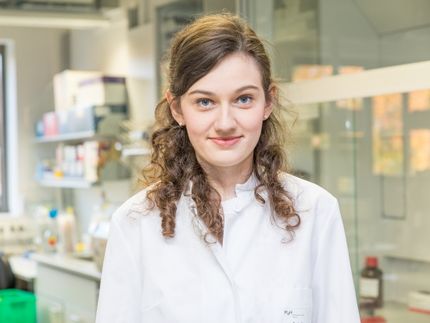New substance overcomes treatment-resistance in leukaemia
The chances of patients with Philadelphia chromosome-positive leukaemia (Ph+) being cured has greatly increased in recent years. Nevertheless, a high percentage of patients have developed resistance to available medication. But now, haematologists from Frankfurt, working with a Russian pharmaceutical company, have developed a new active substance that effectively combats the most aggressive forms of Philadelphia chromosome-positive leukaemia, both in vitro and in vivo.
Patients with the Philadelphia chromosome develop chronic myelogenous leukaemia (CML) or acute lymphatic leukaemia (Ph+ ALL). These are the first types of leukaemia that are able to be treated due to the development of targeted molecular therapy. Selective kinase inhibitor active substances act directly on the cancer-inducing gene BCR/ABL. However, after a while, the treatment becomes ineffective for many patients - either due to BCR/ABL mutations or due to other mechanisms that are as yet unknown. At present, there is only one substance, Ponatinib, which is able to overcome nearly all clinical resistance. Unfortunately, Ponatinib can only be used with extreme caution due to some of its life-threatening side-effects.
Moscow-based company Fusion Pharma has developed a kinase inhibitor, PF-114 with the aim of having the same effect on Ph+ leukaemia as Ponatinib, but with reduced side-effects. In the current edition of 'Leukaemia', the team led by Dr. Afsar Mian, Professor Oliver Ottmann and lecturer Dr. Martin Ruthardt from the Haematology Department of Medical Clinic II, have reported that PF-114 is as effective as Ponatinib against resistant Ph+ leukaemia.
"These results provide the basis for the administration of PF-114 in treatment-resistant patients with Ph+ leukaemia. The favourable efficacy and good side effect profile now need to be further tested on patients in clinical phase I studies," explained Dr. Ruthardt. "PF-114 would not have reached this level of development without our colleagues in Frankfurt. On the basis of this data, in the first half of 2015, we will be able to start international phase I studies," explains Dr. Ghermes Chilov, CEO of Fusion Pharma, the company that financed the project.
Original publication
Other news from the department science

Get the life science industry in your inbox
By submitting this form you agree that LUMITOS AG will send you the newsletter(s) selected above by email. Your data will not be passed on to third parties. Your data will be stored and processed in accordance with our data protection regulations. LUMITOS may contact you by email for the purpose of advertising or market and opinion surveys. You can revoke your consent at any time without giving reasons to LUMITOS AG, Ernst-Augustin-Str. 2, 12489 Berlin, Germany or by e-mail at revoke@lumitos.com with effect for the future. In addition, each email contains a link to unsubscribe from the corresponding newsletter.





















































